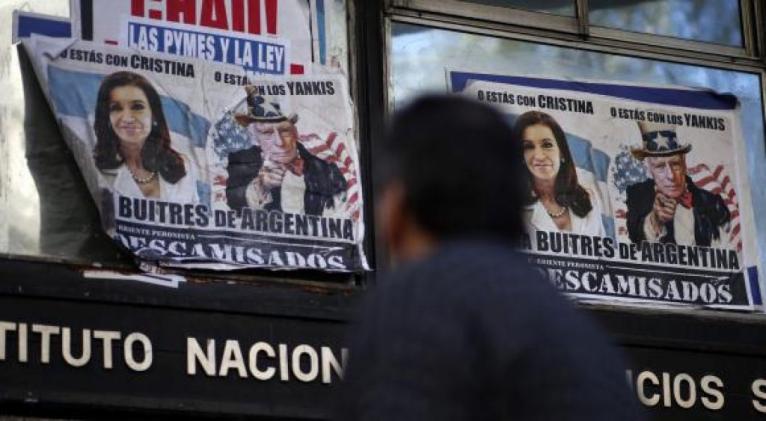Argentina's Congress passes debt restructuring law
especiales

Under the debt restructuring plan, Argentina could make payments on its foreign-held bonds locally or elsewhere beyond the reaches of the U.S. court. It also encourages investors to move their Argentine debt from the United States or other foreign jurisdictions to either Argentina or France.
However, U.S. District Judge Thomas Griesa in New York has declared plan illegal because it violates his order favoring creditors in a dispute over the country's default in 2002.
Griesa in June barred Argentina from servicing debt restructured under U.S. law in the wake of its $100 billion default in 2002 until it settled with hedge funds that rejected the terms of its 2005 and 2010 bond swaps and sued for repayment in full.
Alejo Costa, chief strategist at local investment bank Puente, said he did not expect many creditors to shift their shift their Argentine debt.
"The government will at least send the signal they want," Costa said. "In their view, they're doing what they can to make the payment."
The lower house of Congress passed the bill 134-99 early Thursday morning after a marathon debate that started Wednesday afternoon. The Senate had already approved the proposal last week.
Argentina's next coupon payment is due on Sept. 30.
Argentine President Cristina Fernandez has called the hedge fund creditors "vultures" and accused Griesa of interfering in her nation's national sovereignty. She announced the new debt bill last month to get around his ruling.
Cabinet chief Jorge Capitanich welcomed its passage into law.
"The vote was won by an absolute majority," he said, "ratifying and guaranteeing the willingness of Argentina to meet its financial obligations to the investors who restructured their bonds."
Economy Minister Axel Kicillof acknowledged on Tuesday that creditors had little appetite for the plan.
"Parties that have any link to the U.S. jurisdiction might not be willing to cooperate with Argentina because of the existing orders from Judge Griesa that rule the (plan) illegal," said Ignacio Labaqui, local analyst for consultancy Medley Global.
If creditors refuse to participate in plan, the government can under the new law try to replace the Bank of New York Mellon Corp, the trustee for bond payments, with Nacion Fideicomisos, a unit of state-controlled Banco Nacion. That way, it can service its debt locally.
But skepticism over this part of the plan is growing, too. Kicillof told lawmakers on Tuesday that the government was open to suggestions from bondholders about where to make payments if they were unhappy with its proposal.
(Additional reporting by Hugh Bronstein; Editing by Toby Chopra, Sonya Hepinstall and Lisa Von Ahn)













Add new comment